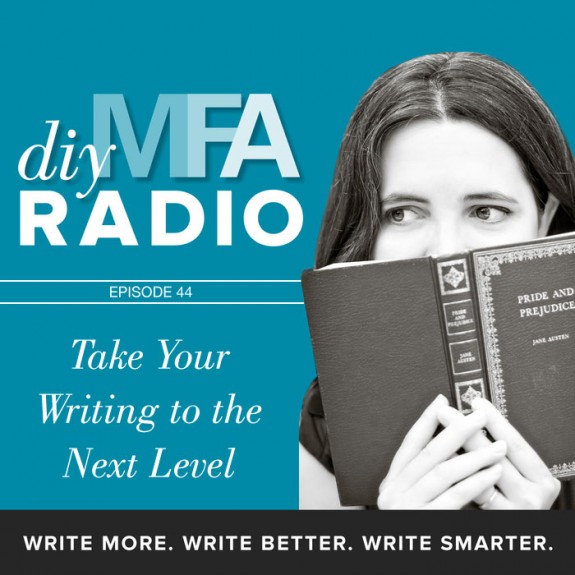Hey word nerd! Today’s episode is all about how to take your writing from a hobby to something more. This episode was inspired by an email I received from a fellow word nerd named Emily. She wrote:
“I want to be a writer when I grow up, and I’ve been told that I’m even good at it. I love writing, I really do, I just… I feel like I’m never going to get past writing essays, fanfiction, and short stories for local contests. Do you have any advice?”
Emily, thanks for asking this very important question. This is a big topic that a lot of writers struggle with, but don’t fret! I have a few suggestions that will help you stay on track and maybe even turn your writing into something more.
There are four simple steps that never fail when you are looking to up your writing game.
- Write something short and focused.
- Revise it until it’s awesome.
- Submit it.
- Repeat.
Now granted, this may seem oversimplified. But these four steps are your best bet to getting that first crucial publication credit.
If you’re focusing on fiction, write a story that’s awesome and then look for the perfect home for it. Smaller literary magazines in your particular niche or genre are a good place to start. Once you find the right home for your writing, you’ll start building your writing credentials. The more by-lines and publication credits you can gather, the better your writing resume will look when you submit to larger, more prominent publications. That, in turn, will increase your odds of getting published in more those bigger publications.
If you’re focusing on non-fiction work, the same basic principles apply. Start with smaller, niche publications in your area of expertise. The more by-lines you can get, the more you’ll build your reputation as an authority in your chosen subject. I recommend that you start with on-line publications where there’s more space for new voices. And don’t forget, when you’re ready you can pitch to big name publications’ on-line departments as well, to get your foot in the door.
You can also gather by-lines by guest posting on blogs. Again, same idea. Find a blog that already focuses on a topic you want to write about, or with an audience that you would really like to reach, and pitch your idea to them.
Usually, when you’re submitting guest posts or non-fiction articles, you’ll pitch concepts instead of writing on spec. That saves you from having to do all of the work beforehand, only to get rejected. When I pitch a concept to an editor, I like to give them three ideas. This shows that I have LOTS of ideas instead of just one pet project while not overwhelming the editor with too many options. Plus, it gives the editor you’re pitching to a choice and some control in what they publish should they want to work with you.
And while we’re on the subject of editors, here are a couple of tips for building a good relationship with your editor:
- Build your writing resume. This shows that your work has been vetted by other reputable sources. An editor appreciates knowing what experience you have.
- Take edits gracefully. Don’t be that diva writer who won’t allow a single change to your work. On the one hand you want to make sure your work reflects your voice and the spirit of the piece you submitted, but usually when an editor suggests a change, it’s because they’re trying to help you put your best foot forward.
Finally I want to mention the touchy subject of being paid for your writing. Some writers believe–and with good reason–that you should always get paid for your writing, and that you should never write for free. I can understand their reasoning, but I think that sometimes you can get benefits other than payment that are just as valuable to your writing career. Sometimes exposure to an audience or the extra by-line can be worth writing for free. Make sure that you don’t limit your opportunities either by taking on too much free work for not enough comparable value, or by refusing to write without getting paid.
One caveat: Remember that money should always flow to the author, not away from the author. Never accept a job where you have to pay someone to publish you.
Link to Episode 44
(Right-click to download.)
If you liked this episode…
Head over to iTunes, leave a review, and subscribe so you’ll be first to know when new episodes are available. Also, if you know anyone who might enjoy this podcast, please share!
Until next week, keep writing and keep being awesome.








